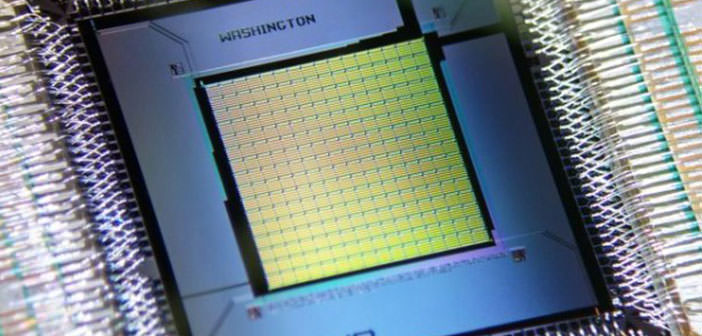Google and NASA have shown that in some areas, the precise quantum computer D-Wave can perform operations at a speed of 100 million times higher than that possible with a standard CPU.
From 2013, Google and NASA collaborate on the development of code designed specifically for a quantum system bought by D-Wave. The researchers of the two companies have reported for the first time in recent days that the system is actually able to process quantum operations, with their trials that show superior performance of 100 million times compared to a traditional single-core processor. The only problem is that at the moment can only solve optimization tasks very specific.
Not being a universal quantum system, in all other aspects of the computer Google and NASA simply cannot compete with a single-core processor. The findings of the two companies still represent a milestone in the work of development and design of computer of the future, with the quantum computer that could replace traditional transistor designs in the category bringing substantial benefits, especially in performance.
The high processing power of the data might consequently, be beneficial in various fields: from health to that of the safety of the aircraft, through astronomy and effectiveness of the autonomous driving car. The transistor computers performing logical processing data bits, assigning to each a value that can vary from 0 to 1. Quantum computers instead they process qubit, also called quantum bits, which are able to simultaneously maintain the value of 0 and 1.
This particular condition is called superposition and, if the developers were able to exploit it, you could perform extremely parallelized. Two qubits can then perform operations on four values, three qubits in eight values, and so on proceeding by powers of two. Today’s computers have millions of transistors, so just think of a quantum computer with millions of qubits to be able to guess, even if summarily, the potential of the calculation in parallel of these machines.
The two teams of Google and NASA have collaborated in Mountain View at the NASA Ames Research Center in California. This is where they put under pressure the D-Wave 2X, the quantum computer, according to data released by the company, contains over 1000 qubits. The system was announced in the first version as the first commercial quantum computer, although in reality, the company had not yet been able to demonstrate its operational capacity.
Only recently, researchers were able to show the way in which pieces of code in a system consisting of two qubit integrated into a silicon chip. All change with the new Google ad and NASA, who claim for the first time that D-Wave is able to operate very effectively in some very specific areas, such as operations calls quantum annealing.
During an event of the past few days, Google and NASA have shown the performance of D-Wave with the execution of the particular technique as opposed to those obtained with a conventional CPU in simulated annealing. In this particular area, particularly dear to the two companies, D-Wave was able to fix it 100 million times faster. Below is an excerpt from the statement of the two companies.
We found that for instances involving about 1000 binary variables, the quantum annealing significantly exceeds its classical counterpart, the simulated annealing. It is more than 10 ^ 8 times faster than the simulated annealing processed on a single core. We also compared the hardware quantum with another algorithm called Quantum Monte Carlo. It is a method designed to emulate the behavior of quantum systems, but runs on conventional processors. Since we can reparameterized the differences in size between these two methods, the results are also in this case extremely different, sometimes even 10^8 times.
The document released by Google is yet to pass the peer review that usually serves to validate the results of a test. If they are validated, the results of Google and NASA what would be important for the dissemination of quantum computers? The answer is a lot, but think that the quantum computer can get to every house overnight would be wrong. Many companies are working on technology but even if the quantum computer is now able to perform certain types of operations in an extremely effective counter is not used as a general-purpose machine, and probably will be for quite some time.

